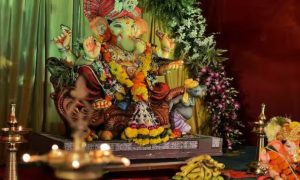Mahashivratri, the festival dedicated to Lord Shiva, one of the main deities of Hinduism is celebrated every year in the month of Magha as per South Indian calendar and Phalguna as per North Indian calendar. The observance of Mahashivratri is different from the celebration of Shivratri that falls every month and in total 12 times a year. As per a legend, Mahashivratri or the Great Night of Shiva refers to the night when Lord Shiva performs his Tandava Nritya. Another legend says the day commemorates the night when Shiva and Parvati got married. This year Mahashivratri will be observed on February 18, 2023 (Saturday).
Read More: Shabari Jayanti 2023: Date, time, puja vidhi and significance
Mahashivratri celebrations
Mahashivratri is celebrated across the country be it Uttarakhand, Rajasthan, Uttar Pradesh, Madhya Pradesh, Punjab, Himachal Pradesh, Bihar to Karnataka, Tamil Nadu, Andhra Pradesh or Telangana. Devotees across the country visit Shiva temples, perform Shiv Archana and offer milk, dhatura bel patra, sandalwood paste, ghee, sugar and other bhog items to the Shivling. Shiv bhakts observe a whole-day fast on the day and break the fast the next morning. Unlike many other festivals, Mahashivratri Puja is conducted in the night.
While observing the fast, devotees can eat satvik food items like buckwheat, ragi, sabudana, fruits and some types of vegetables. In case you too are observing Mahashivratri fast, you should follow these Dos and Don’ts
Read More: International Childhood Cancer Day 2023: Raising Awareness of Paediatric Cancer
Mahashivratri fasting Dos
1. The sankalp for Mahashivratri fasting is taken a day prior to the vrat after taking a bath in the morning and while doing Shiv Puja. The sankalp is by placing some rice and water in the palm.
2. Wake up early in the morning on the day of the fast around Brahma Muhurta or sunrise.
3. On the day of the fast, one should take a bath and wear clean clothes, preferably white.
4. People who are observing this fast are advised to do ‘Om Namah Shivay’ chanting several times in a day.
5. Since Shivratri Puja is conducted in the night, devotees should take a second bath in the evening before doing Shiv Puja. Devotees usually break the fast next day after taking bath.
6. People who are suffering from certain health conditions or are on medication should consult their doctor before going ahead with the fasting.
7. The offerings for Lord Shiva include milk, dhatura flower, belpatra, sandalwood paste, yogurt, honey, ghee, and sugar.
8. Devotees should break the fast between sunrise and before the end of Chaturdashi Tithi to get maximum benefit of the Vrat, as per Drikpanchang.
Mahashivratri fasting Don’ts
1. One should not consume food made of rice, wheat or pulses as these food items are not allowed during the fast.
2. Non-vegetarian food, garlic, onion should be strictly avoided as these items are tamsik in nature.
3. One should not offer coconut water to Shivling.





































